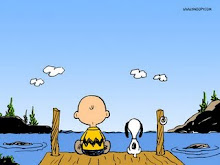Conspirator

- Brian
- I went out there in search of experience To taste and to touch and to feel as much As a man can before he repents.

A framework, for Taylor, incorporates a set of qualitative distinctions by which one may determine the good life, or perhaps higher modes of life. These qualitative distinctions are ends or goods that are worthy or desirable in a way that cannot be measured as ordinary goods. They are not more desirable--as in being of a greater degree--than ordinary goods, but they are of special status because they command our awe, admiration, and respect. These goods that command our awe also function as standards of the higher life. Taylor describes a few frameworks so as to more clearly identify their nature.One of earliest frameworks in civilization--and one that is still in play today--is the honor ethic. In the honor ethic, "The life of the warrior, or citizen, or citizen-soldier is deemed higher than the merely private existence, devoted to the arts of peace and economic well-being" (20). Here, the higher life is marked by the aura of fame and glory that attaches to this framework, or at least for those succeed in it. To be in public life to to be, at the very least, a candidate for fame. To put one's tranquility, wealth, life at risk for glory is the mark of a real man. Those who cannot bring themselves to this pursuit are judged as "womanish".
 Plato established an immensely influential counter-framework to the honor ethic in which virtue is found, not in the public life or excelling in the warrior agōn, but rather virtue is found in a life of reason--reason, for Plato, is seen in terms of a vision of order in the cosmos. "The higher life is one in which reason--purity, order, limit, the unchanging--governs the desires, with their bent to excess, insatiability, fickleness, conflict" (20). The idea of reason has shifted over time; it is no longer understood in terms of a vision of the order in the cosmos, but is defined procedurally, as instrumental efficacy, or maximization of the value sought, or consistency. Plato's ethic is the bridgehead of a large family of views that define the good life as a mastery of self which consists in the dominance of reason over desire. With the advent of the scientific age, there also emerged the "ideal of the disengaged self, capable of objectifying not only the surrounding world but also his own emotions and inclinations, fears and compulsions, and achieving thereby a kind of distance and self-possession which allows him to act 'rationally'" (21). Remember, 'rational' in this instance should be defined through the later idea of reason described above, not the former described above.
Plato established an immensely influential counter-framework to the honor ethic in which virtue is found, not in the public life or excelling in the warrior agōn, but rather virtue is found in a life of reason--reason, for Plato, is seen in terms of a vision of order in the cosmos. "The higher life is one in which reason--purity, order, limit, the unchanging--governs the desires, with their bent to excess, insatiability, fickleness, conflict" (20). The idea of reason has shifted over time; it is no longer understood in terms of a vision of the order in the cosmos, but is defined procedurally, as instrumental efficacy, or maximization of the value sought, or consistency. Plato's ethic is the bridgehead of a large family of views that define the good life as a mastery of self which consists in the dominance of reason over desire. With the advent of the scientific age, there also emerged the "ideal of the disengaged self, capable of objectifying not only the surrounding world but also his own emotions and inclinations, fears and compulsions, and achieving thereby a kind of distance and self-possession which allows him to act 'rationally'" (21). Remember, 'rational' in this instance should be defined through the later idea of reason described above, not the former described above.
Initially, the transformation of the will as the good life formed an obvious theistic variant in Christianity, but the partnership was an uneasy one. With the decline of a theological understanding of nature, there emerged a formulation between higher and lower life demarcated by the terms of altruism and selfishness. Real dedication to others or to the universal good wins our admiration and even our awe. (Think Bono.) The vital quality at play here, which commands our respect, is the direction of the will.
